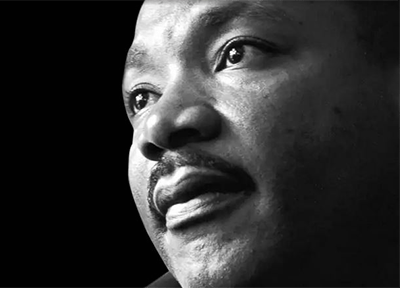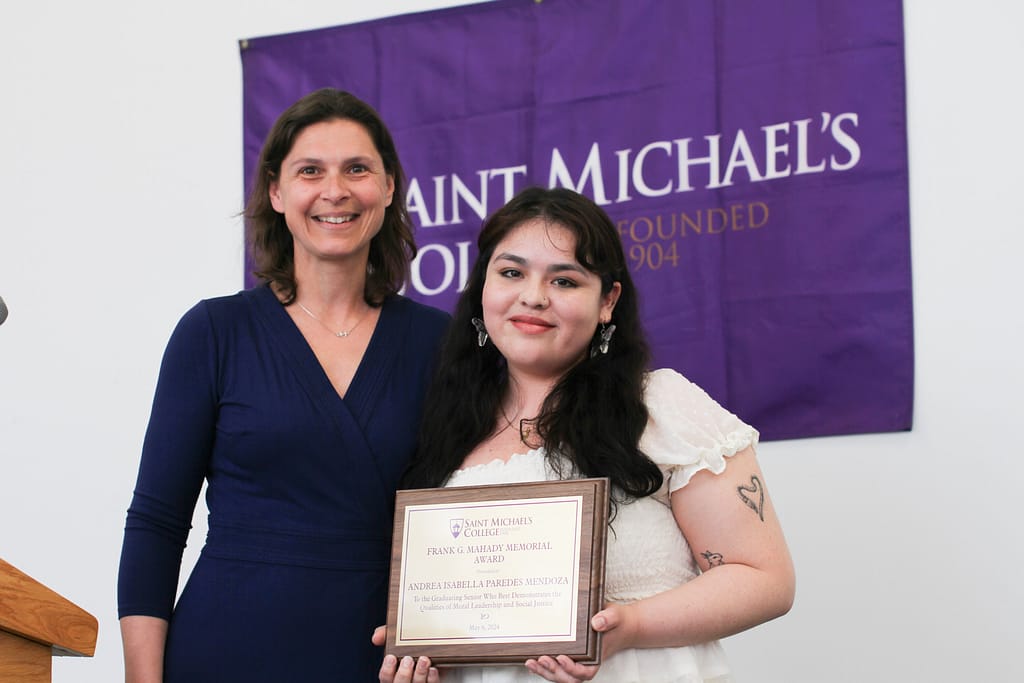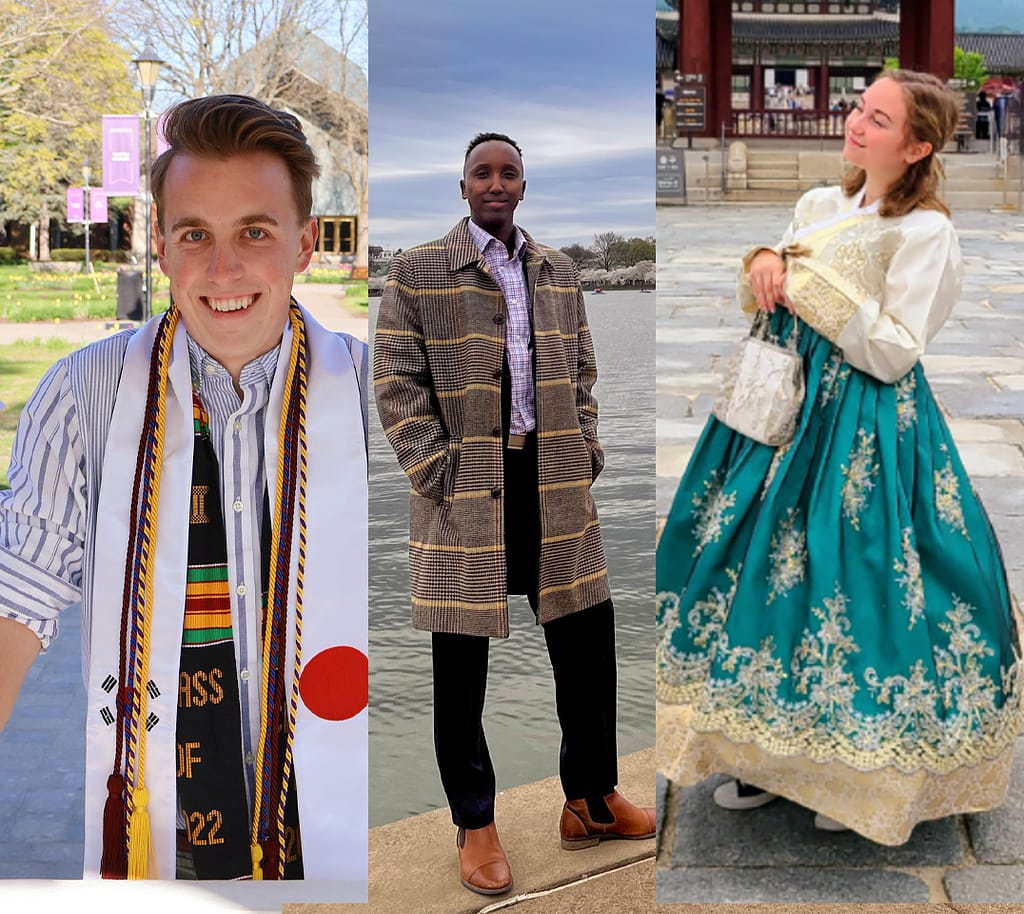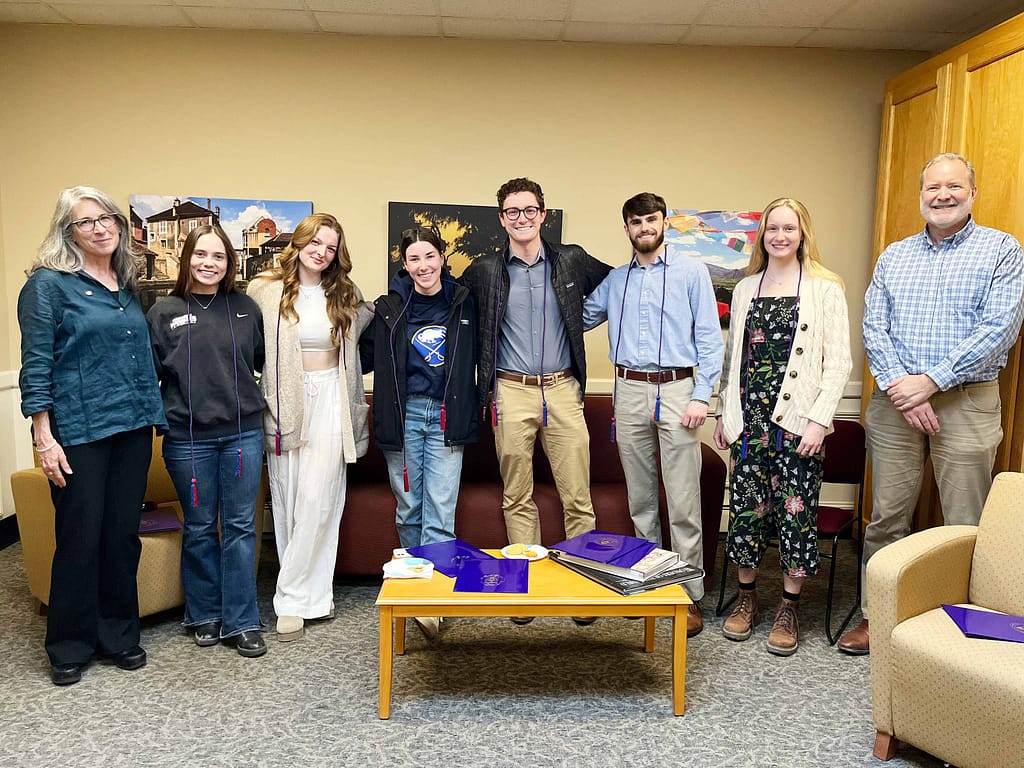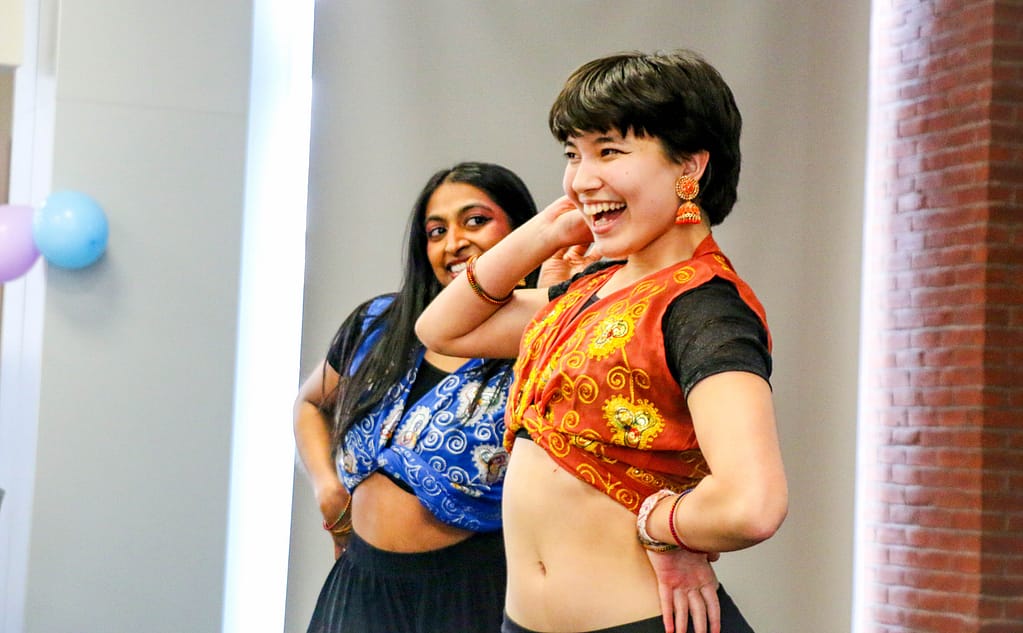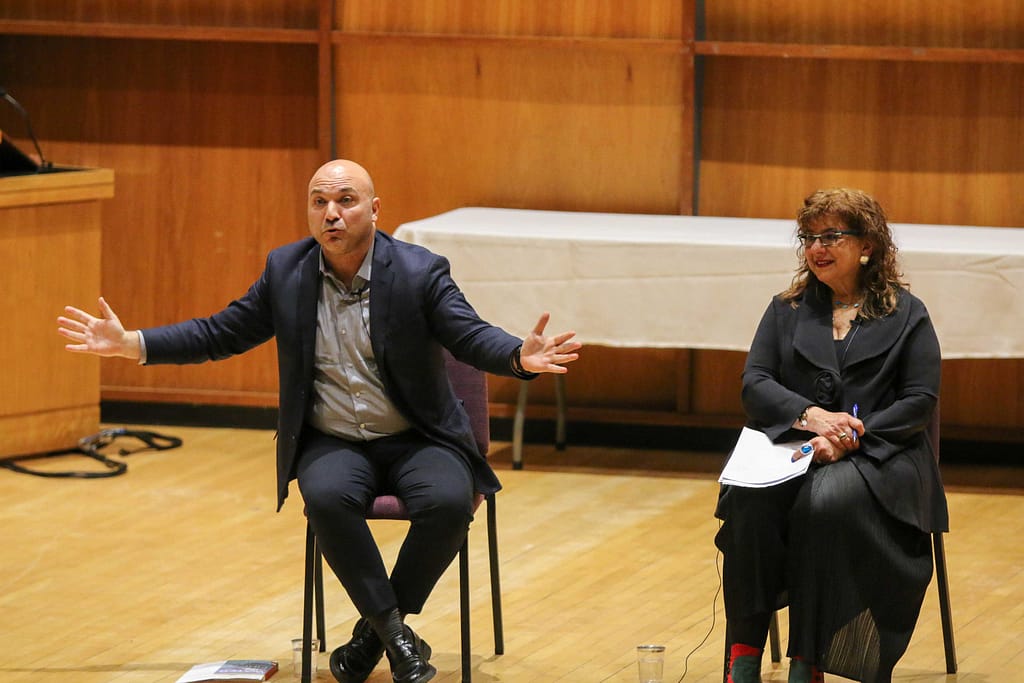Diverse panelists model ‘beloved community’ by ‘calling people in’
Students reflect on MLK and his legacy as experienced on the campus of Saint Michael's College
One of many events occurring on the Saint Michael’s College campus this week in celebration of Martin Luther King, Jr. and his life was a student panel Monday evening in Dion Student Center. Conversations on campus this week are focused on continuing the legacy of Martin Luther King, Jr. alongside the many other Civil Rights leaders and developing a beloved community at the College. 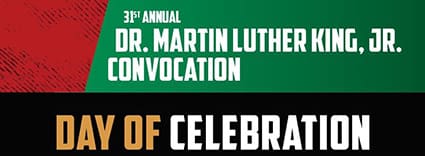
The idea of a “beloved community” stems from the overall theme of MLK, Jr. Week – fostering an empathetic and open community where everyone feels not only welcome, but valued. The Roy Room was packed full of people
Panelists Chicha Romain `24, Dakota Thomas `24, Francois Raogo Wemniga (Fulbright Scholar), Kaltumo Ibrahim `25, Oumar Moussa Djigo (Fulbright Scholar), and Adbimalik Hashi all shared with attendees their personal experiences as BIPOC students at Saint Michael’s College as well as their perspectives on Martin Luther King, Jr. Day and the legacy of the Civil Rights Movement.
The panel did not focus on only one topic, but rather encouraged questions and allowed the direction of the conversation to flow where the panelists and attendees took it. When asked why he chose to participate in the panel discussion, Hashi said, “It is more common to call people out than to call people in, especially when it comes to race… so it’s important to foster that ‘beloved community.’”
One audience member – this student reporter — felt the panelists represented the core of what Saint Michael’s College is, and what the College desires to be — the atmosphere within the room was positive, loving, and an environment where all students could feel comfortable having a conversation that might not have been entirely comfortable. The panelists inspired admiration for fostering such an open atmosphere.
“What are your hopes for this conversation?”
Dakota Thomas, coordinator for Diversity, Equity, and Inclusion on the E-Board at the College, hoped that the panel could be an opportunity for reflection and analysis on our own life experiences. “Go home and have a conversation with yourself about your own life and journey,” she said.
Romain agreed with Thomas, adding that it is important to “call people in” and empowered listeners to look out for others and call out ignorance. “Grow with the people that you care about,” he said, “because you don’t want to see those you care about fall behind.”
The other panelists agreed, centering around the general desire for open, honest, and reconstructive conversation.
“What does Martin Luther King, Jr. Day mean for you as Saint Michael’s students?”
Ibrahim mentioned that in her experience, MLK Week is an important and welcome change of pace from the monotony of the school year and other academic events. It’s an important celebration, she said. “It means a lot.”
Hashi added that his desired outcome for this week was that it would spur consistency within the students but also within the College as a whole to not forget about its mission to create a beloved community for all students.
Thomas said that in the planning process for MLK Week, Black pain was emphatically not going to be at the center of the conversations and events. “Focusing on Black joy and Black beauty was the desired route” for educating others this week, she said.
Romain said that “it’s a beautiful thing” to see and feel the impact and constant presence of Black perseverance. He felt that, given his experience as a first generation immigrant from Trinidad and growing up in New York City, he was exposed disproportionately to Black pain through media. But despite the struggle, he said, Black people have maintained perseverance. Witnessing recently the new statue commemorating Martin Luther King, Jr. and Coretta Scott King’s embrace in Boston, he saw it as an “embrace of the positive work that has been done.” He said, “All progress should be acknowledged and commended, even if we’re still trying to reach that ‘beloved community.’”
Wemniga added, “Wherever we go, we’re Black and white students in this together.”
“Is there something about your experience at Saint Michael’s College that would surprise others?”
Hashi explained that the way he looks at obstacles he has faced in his life, in general or through the Black experience, he feels as though they have only made him a stronger and better person. He believes his upbringing being highly informed by Kenyan culture influence how he metabolizes challenges, but he is encouraged by the change that is coming.
Thomas shared that upon her arrival at college, she felt that “people brought their egos to conversations about race,” and sometimes there were challenges in deciding how to pursue conversations in white spaces even when her white peers meant well.
Following on both Hashi’s and Thomas’ perspectives, Djigo added that “self-awareness is the best way to follow the teachings of Martin Luther King, Jr.”
“What vision do you have for Saint Michael’s College to improve/be that ‘beloved community?’”
“Everybody is the best they’ve ever been… so don’t try to put people down – please be kind,” Romain stated. Accountability is essential even when it is uncomfortable. “If we address the people, we can change the community,” he said, “because the people make up society.”
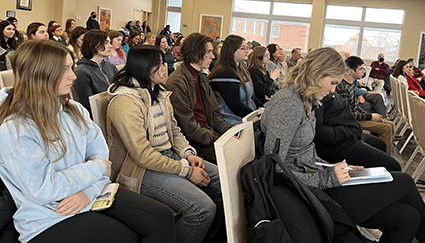
Good sized crowds packed into all the MLK Celebration Day events in the Roy Room Monday. (photo by Elizabeth Murray ’13)
As a Fulbright Scholar from Burkina Faso, Wemniga was scared to be thrust into the majority-white community at Saint Michael’s College but has felt exceptionally welcomed. While he learned to navigate the cultural differences between the United States and his home country, he found Saint Michael’s College to be “charming.”
Thomas noted how Saint Michael’s College is one of many communities of people trying to educate and better themselves. A lot of Civil Rights leaders were college students, or around that age, so she finds empowerment in that and encourages others to do the little things. “Say hi, be a community,” she said.
Ibrahim emphasized the importance of being honest about the things that haven’t been done as much as the things that have been done, especially in the upper level Saint Michael’s administrative positions.
Djigo encouraged students and faculty alike to break down barriers through conversation. Conversation can be a powerful thing and it is important to feel connected to those around you.
Hashi said his impression of Saint Michael’s College as a community is strong, and mentioned a trademark of Saint Michael’s College campus culture, which is holding doors for one another. It is a core part of what it means to be a student at Saint Michael’s College and an expected part of campus culture.
Students made sure to mention the Purposeful Learning Office, Center for Diversity, Empowerment & Community (DEC), and Center for Women & Gender (CWG) as places where they have individually found joy and community on campus and hope to see others taking advantage of these spaces.
